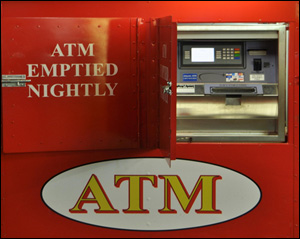 Bank fees are continuing to increase because of banks’ desire to find more ways to bring money in to compensate for lost revenues. There was also a recent overhaul in the way that banks can apply overdraft fees to a consumer’s bank account that has decreased the amount of money many banks receive from this area of revenue. A tough economy has also affected cash flow into banks.
Bank fees are continuing to increase because of banks’ desire to find more ways to bring money in to compensate for lost revenues. There was also a recent overhaul in the way that banks can apply overdraft fees to a consumer’s bank account that has decreased the amount of money many banks receive from this area of revenue. A tough economy has also affected cash flow into banks.
Consumers can stop high bank fees simply by voting with their wallets. Use these simple steps to avoid fees. The more consumers flock to banks that charge fewer fees, the more banks will lower their fees to stay competitive.
Try these simple steps to take to avoid monthly fees:
1 – Know the Fees
One simple step to take that will save many consumers money is to know the bank rules for applying fees to their account. Many banks will give their new client a package at the time of opening their new checking or savings account that includes fee disclosures, or the bank mails them to the consumer shortly after the bank processes the account in its system. People neglect to read these important documents.
A client who maintains the required minimum balance will often prevent a maintenance fee from going on the account. Some banks will also waive the fee if a client sets up direct deposit. After reading the rates for their particular checking or savings account, a consumer may see that it doesn’t work for their level of monthly activity. They should consider switching accounts at the bank, or can transfer to another bank that has lower fees. Recently, banks have been pushing for their customers go paperless with banks rewarding those who do with a reduction or no monthly maintenance fee. Reduced mailings save banks a large amount of money.
2 – Avoid Overdrafts
Overdraft fees are another area that bank clients should learn to avoid. These fees tend to be very high, and amassing them may put a person’s account in the negative. Recent federal laws were enacted to protect consumers from unfair overdraft fees. The main change is the requirement that a bank apply deposits first before withdrawals to a customer’s account on a transaction day. Some banks were doing the reverse, causing overdraft fees, and would then apply the money clients had deposited to cover pending transactions.
A smarter consumer should schedule monthly bills to go out one or two days after they expect a deposit to avoid an overdraft fee. Do all you can to keep at least one-month’s rent or mortgage payment in reserve. Some banks also have overdraft protection available, and a client should consider signing up for this service. Overdraft protection can also be linked from a checking to a savings account.
3 – Enjoy ATM Convenience without the Fees
ATM service is a convenience for many busy customers, but these fees can add up quickly. It is very important to know the bank rules for applying these fees. To avoid ATM fees, clients should make every effort to use only the bank’s ATM machines. Some banks may not have as strict a policy when a consumer uses an outside ATM. If something is unclear about the bank’s policies, a consumer should contact a bank representative to clarify.
Some banks even offer ATM fee reimbursement if you go to another bank. Seek out a bank that offers this benefit as long as their other fees and rules work for you too.
Find more personal finance tips from Jessica Bosari at SavingTools.com.
Photo credit: Kat Sniffen